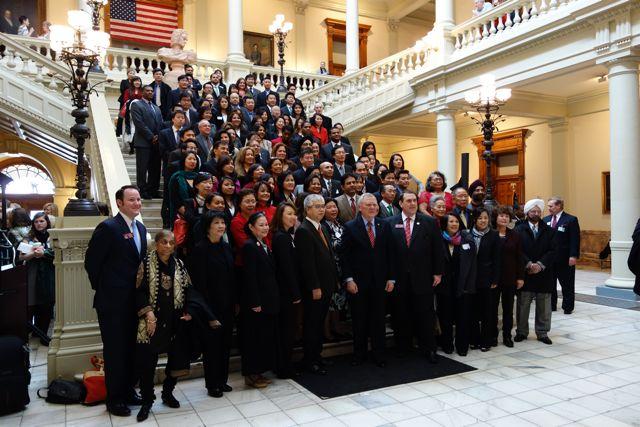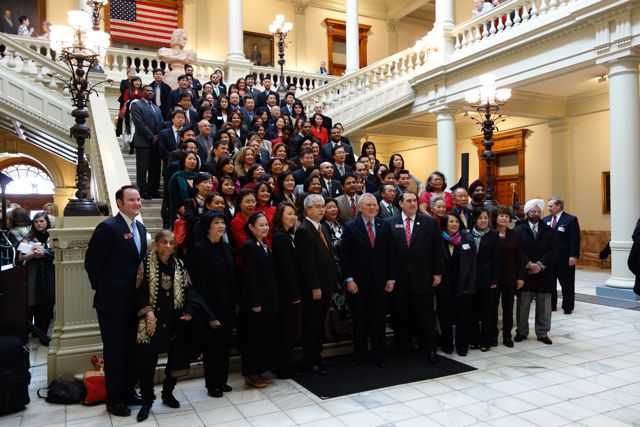ATLANTA—Nathan Deal (R-Ga.) posed for pictures with people of Asian descent at the state capitol on Feb. 28, marking the first Asian American and Pacific Islander Legislative Day. The group filled a staircase inside the capitol rotunda.
Organizers hope to have started an annual tradition, according to lawyer Bonnie Youn.
Rep. B. J. Pak (R-Ga.) said, “I was very proud to walk around and see so many Asians in the capitol. I think it really is historic.”
The day was meant to encourage Asian Americans to take part in civic affairs and public life. Pak told the group to “no longer fall into the trap of identifying yourself as one group. You’re Georgians and Americans first.”
Asian Americans care about the same issues as the majority, according to Helen Kim Ho, executive director and lead attorney for Asian American Legal Advocacy Center Inc. (AALAC) of Georgia. They care about their children and their children’s education. They want sensible and fair national immigration reform.
Juvenile Justice
Juvenile justice reform is high on the AALAC’s policy agenda, and a juvenile justice reform bill (H.B. 242) passed the House that day.
“This bill will do a lot for all children,” said Julia Nabors of the JUSTGeorgia justice coalition. “We have to make sure that those who come before juvenile justice have a chance to change.”







